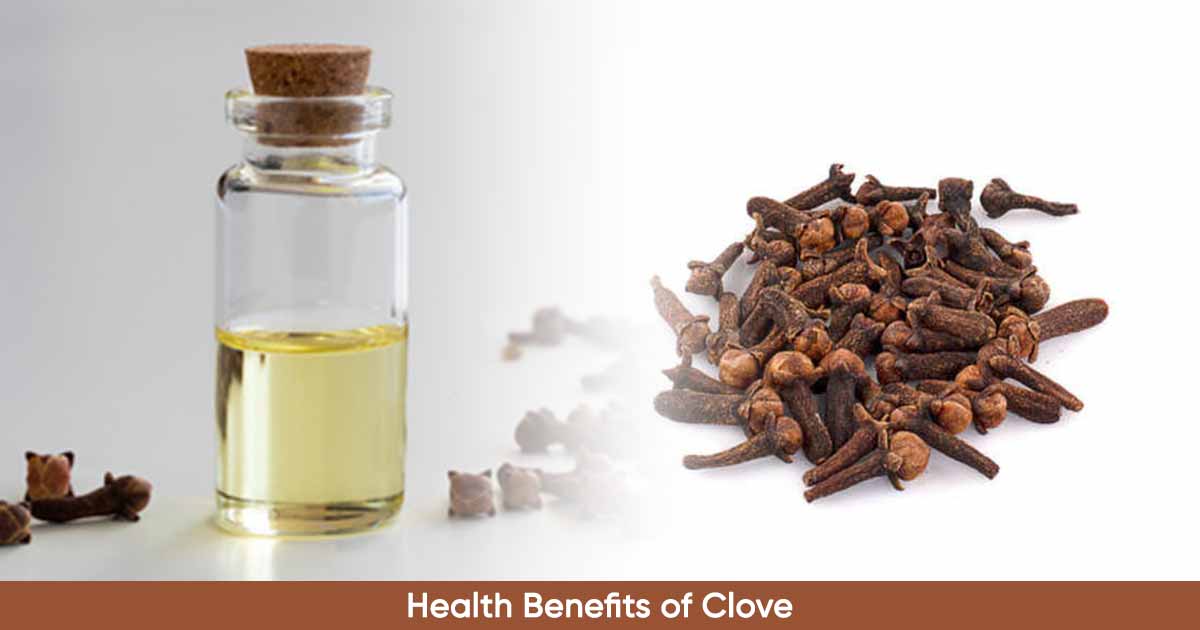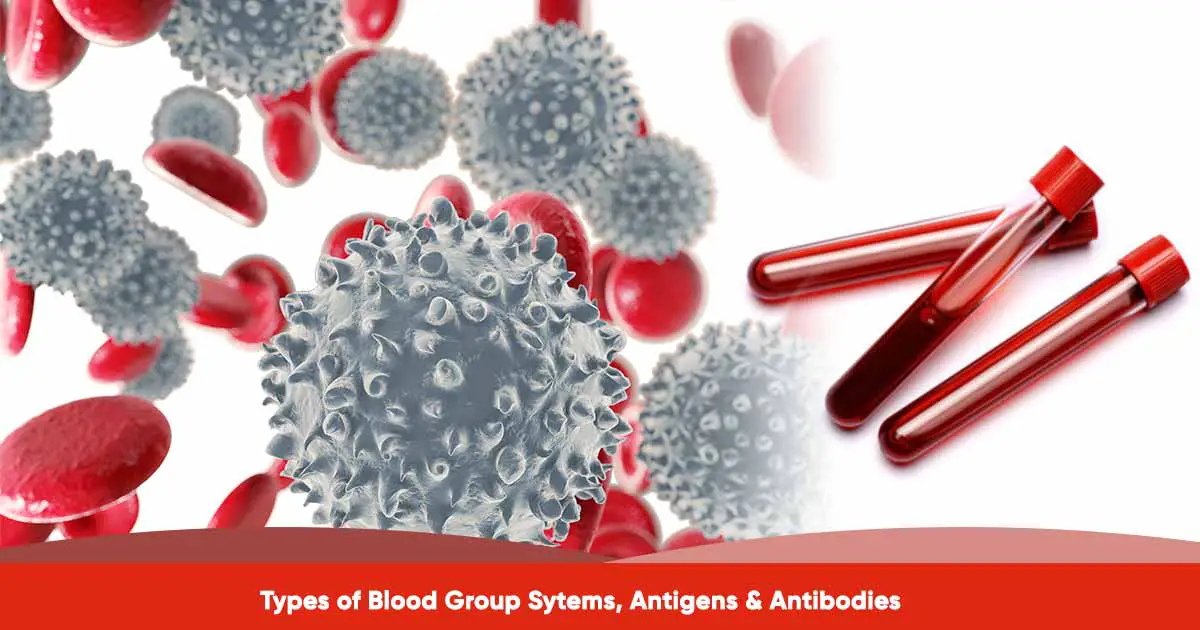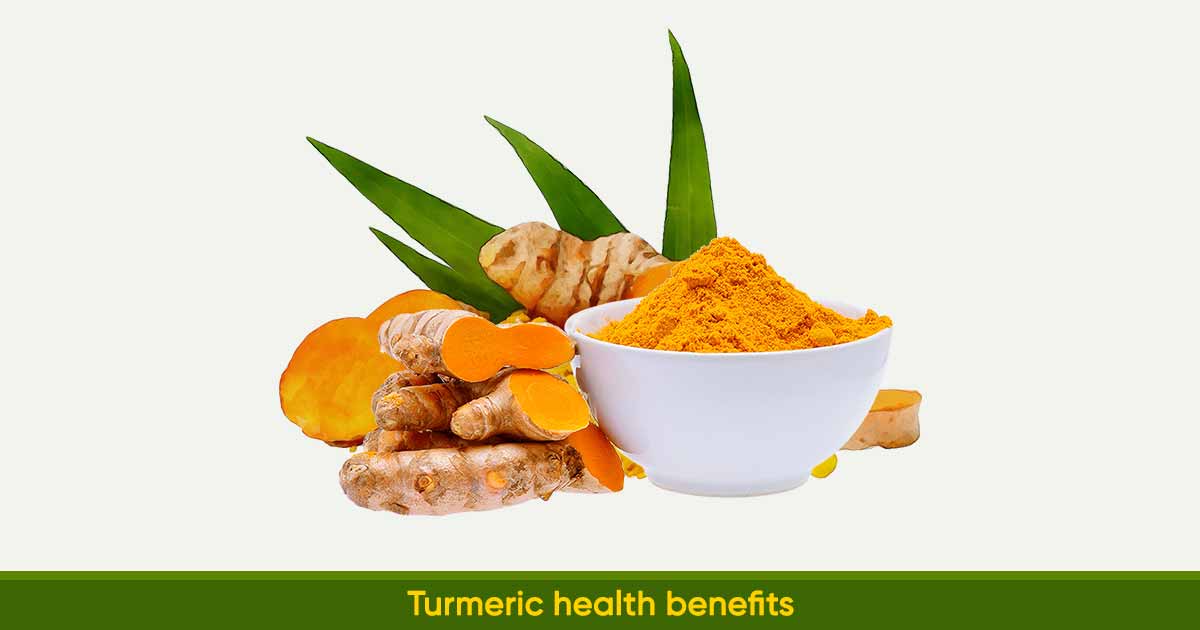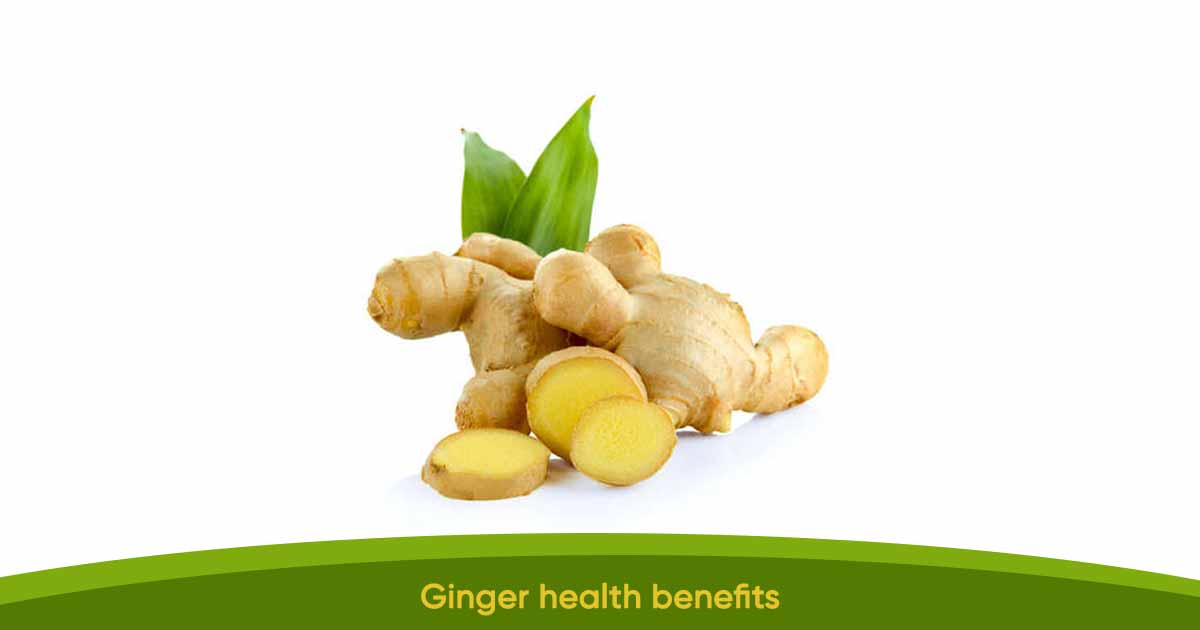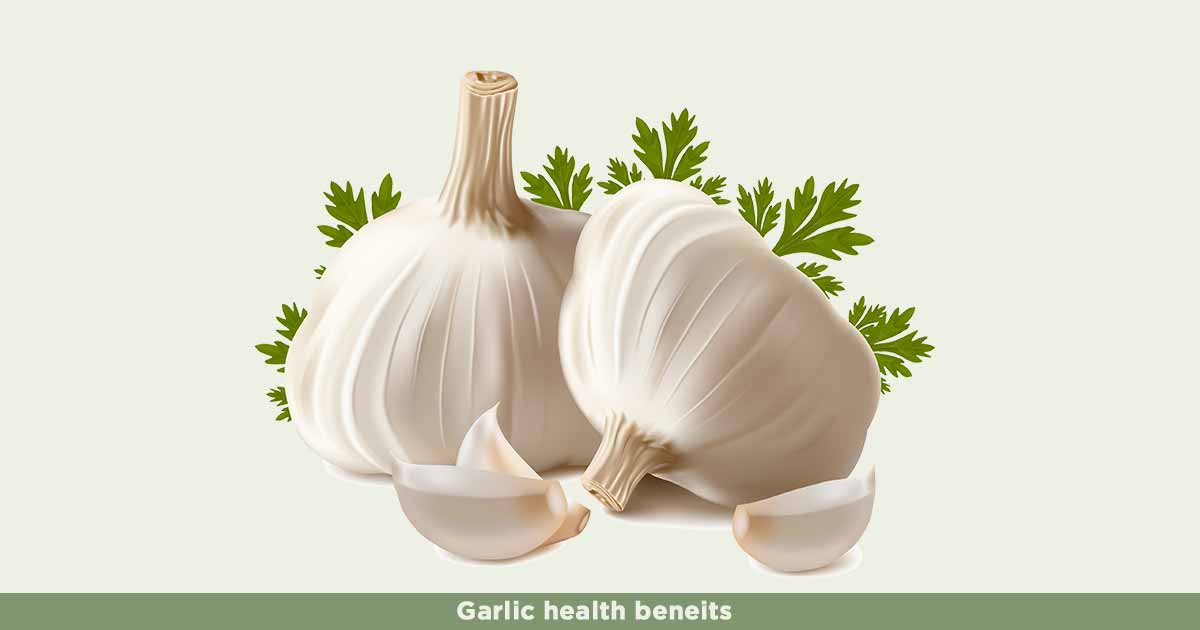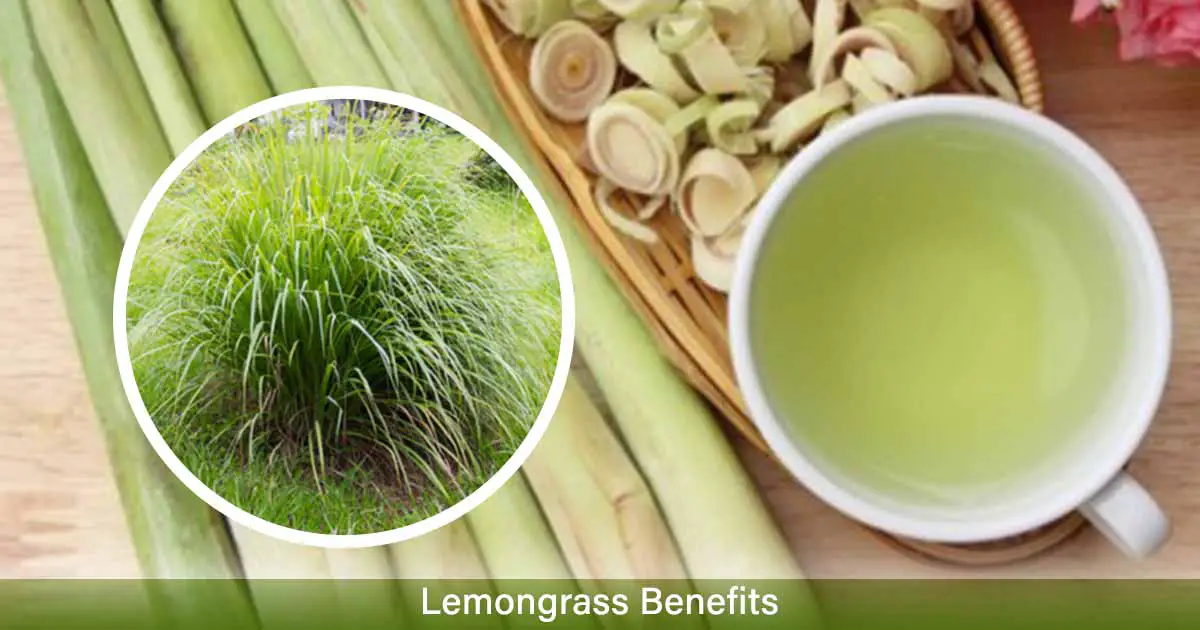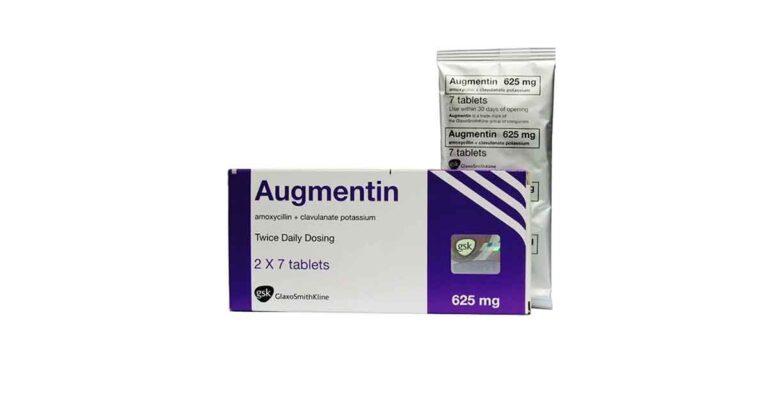Cloves, from the plant family, Myrtacea are the aromatic dried buds of a tree called Eugenia caryophyllata also sometimes Syzgium aromaticum. They are used as a spice in cuisine in many parts of the world. Clove has potential antioxidant and antimicrobial properties, among other health benefits.
Syzgium aromaticum is an evergreen plant ranging from 8 to 12 m in height, having large spear-shaped leaves. The flower bud of the clove tree, looks like a broad-headed nail. The flower buds initially have pale color that later turns green, and then bright red before harvesting.
Yellowish flowers have a strong phenolic smell and sharp acid taste. The essential oil of clove is a colorless or light yellowish fluid extracted from dried flower buds
The word ‘Clove’ is from the French word ‘Clou’ and the English word ‘Clout’, meaning ‘nail’.
The seeds should be collected from fully ripe fruits for raising seedlings. Fruits for seed collection, known commonly as “mother of clove” are allowed to ripe on the tree and drop down naturally. Only fully developed and uniform sized seeds, which show the signs of germination by the presence of pink radicle, are used for sowing. For better growth, sow the seeds immediately after harvest.
The trees begin to flower in six years. When the buds mature, harvesting has to be done very carefully so as not to damage the branches, hindering the subsequent growth of the trees.
Common names of cloves are carophyllus, clovos, caryophyllus, Ding xiang (Chinese), cravo de India (Portuguese), kruidnagel (Dutch), giroflier, cloude girofle (French), gewürznelke, nelke (German), kabsh qarunfil (Arabic), garifalo (Greek), clavo de olor (Spanish), chiodo di garofano (Italian), kryddnejlika, kryddnejlikor, nejlikor (Swedish), carenfil (Turkish). Others are dhing huongnchara (Vietnamese), lwaang (Nepalese), cengke (Indonesian), laung, laumg, lavang (Hindu), jeonghyang (Korean), kloovu (Igbo, Nigeria), kanafuru (Yoruba, Nigeria), kanumfari (Hausa, Nigeria).
Clove possesses antioxidant properties and offers physical, mental and emotional health benefits. Syzgium aromaticum also has antifungal, anti-viral, antimicrobial, anti-diabetic, anti-inflammatory, antithrombotic, anesthetic, pain reliving and insect repellent properties, among others.
Apart from the health benefits, clove and garlic, clove tea and other recipes are made from the plant.
Nutritional Content of the Clove
The climatic conditions under which it is grown, processed and stored affects the nutritional content value. The dried clove bud contains carbohydrates, fixed oil, steam-volatile oil, resins, tannins, proteins, cellulose, pentosans and mineral elements. Carbohydrates comprise about two-thirds of the weight of the spice. The dried dark and flower buds also contain nutrients like proteins, minerals, vitamins, etc.
| NUTRIENTS | UNIT | VALUE |
| Water | g | 6.86 |
| Energy | Kcal | 323 |
| Protein | g | 1350 |
| Fat(lipid) | g | 5.98 |
| Carbohydrates | g | 20.07 |
| Fiber | g | 61.21 |
| Ash | g | 34.2 |
| Calcium(Ca) | mg | 5.88 |
| Iron(Fe) | mg | 646 |
| Magnesium(Mg) | mg | 8.68 |
| Phophurus(P) | mg | 264 |
| Potassium(K) | mg | 105 |
| Sodium(Na) | mg | 1102 |
| Zinc(Zn) | mg | 243 |
| Copper(Cu) | mg | 1.09 |
| Manganese (Mn) | mg | 0.347 |
| Selenium (Se) | mcg | 30.033 |
| Vitamin C (Ascorbic acid) | mg | 5.9 |
| Vitamin B1(Thiamine) | mg | 80.8 |
| Vitamin B2 (Riboflavin) | mg | 0115 |
| Vitamin B2 (Niacin) | mg | 0.267 |
| Vitamin B6 | mg | 1.458 |
| Vitamin B12 (cynacobalamin) | mcg | 0.590,00.00 |
| Vitamin B9 (Folate) | mcg | 93 |
| Vitamin A (Retinol | UI | 530 |
| Vitamin E (Tocopherol) | mg | 8.52 |
| Vitamin K (phylloquinone) | mcg | 141.8 |
| Fatty acids (saturated) | g | 5.438 |
| Fatty acids (monounsaturated) | g | 1.471 |
| Fatty acids (polyunsaturated) | g | 7.008 |
| Phytosterol | mg | 256 |
| Beta carotene | mcg | 84 |
Bioactive Elements in Clove
Clove contain both volatile and non-volatile constituents. The volatile constituents include volatile oils from the leaves, stem, buds, and the fruit. The volatile oil composition differ in different parts of the plant. They include eugenol, eugenyl acetate, and β-caryophyllene. These oils contain constituents such as methylamylketone, methyl salicylate, α-and β-humulene, benzaldehyde, β-ylangene, chavicol, and minor element, methylamylketone. Eugenol is the most important constituent in Syzgium aromaticum that is responsible for the medicinal benefits.
The non-volatile constituent in cloves are tannins such as eugenin, ellagitannin, eugenol glucoside gallate, and two ellagitannins, syzyginin A and syzyginin B. There are triterpenoids such as oleanolic acid, maslinic acid 2α-hydroxyoleanolic acid. Sterols present are sitosterol, stigmasterol, and campesterol. The flavonoids found are isobiflorin, biflorin, and apigenin compounds.
Medicinal Benefits of Clove
1. Antioxidant effect:
Clove is a powerful anti-oxidants. In The Oxygen Radical Absorption Capacity test (ORAC), a U.S. Department of Agriculture scale for comparing antioxidant activity, the plant has a ORAC score of over 10 million. A drop of clove oil is 400 times more powerful as an anti-oxidant than wolf berries or blueberries.
The strong antioxidant activity is comparable to the action of other synthetic antioxidant, such as BHA (butylated hydroxyl anisole) and pyrogallol. Antioxidants possess radical scavenging activity, and also prevent lipid peroxidation. This protects the body against heart disease, cancer, and neurodegenerative disease.
The antioxidant activity in the plant is mostly due to the major aroma components, eugenol, and euginin, in the bud.
2. Anti-microbial action:
Clove oil is a natural antiseptic plant, found to be more effective than sodium propionate, a standard food preservative, against some foodborne microbes. It is found to be very effective against Staphylococcus species, S. Aureus, Klebsiella Pneumoniae, Pseudomonas aeruginosa, Clostridium perfringens, E.coli.
Also, it has activity against fungi, Aspergillus niger, Candida albicans, and dermatophyte species, that cause Athlete’s foot and nail fungus.
3. Cloves as aphrodisiac (sexual function)
It has been found that ethanolic extract of clove (50%) produced a significant and sustained increase in the sexual activity of normal male rats. The extract reduce lipid peroxidation and increases the level of antioxidant enzymes. This effect improves the motility of sperms, the sperm count, and the serum level of testosterone.
In another study, natural extracts of clove, sophora flower bud, and yam improved fertility in aged female mice, hence it may be used to improve ovarian functions for women at advanced maternal age.
4. Anti-cancer activity:
In a lab study, an infusion of clove reduced the benzo[a] pyrene (BP) induced lung carcinogenesis in strain A mice, and croton oil induced skin carcinogenesis in swiss mice.
The plant can effectively prevent lung cancer as well as skin cancer. Eugenol, one of the major constituents, helps in minimizing the harmful effects of environmental wastes that can cause cancer of the digestive system in people.
5. Antiviral action:
Eugenin, the essential oil from the buds, showed antiviral activity against Herpes Simplex virus at a concentration of 10 µg /ml.
6. Anti-inflammation:
Eugenol, which is the main primary constituent of clove’s volatile oils, is an anti-inflammatory agent. Adding clove extract to diets already high in anti-inflammatory components (like cod liver oil, with its high Omega-3 fatty acid constituent) will increase the effect.
The plant contains a variety of flavonoids, including kaempferol, rhamnetin and β-caryophyllene which also contributed to its anti-inflammatory and antioxidant properties. The essential oil of Eugenia caryophyllata had an anti-inflammatory effect similar to etodolac and indomethacin at certain doses, respectively.
Aroma therapists also use pure clove oil to cure the symptoms of rheumatism and arthritis.
7. Relieves digestive symptoms
Cloves has many health benefits such as use in managing and relieving digestive problems such as flatulence, loose motions, indigestion, nausea, diarrhea, gastric irritability and vomiting. It is used as a carminative, to increase hydrochloric acid in the stomach and to improve peristalsis.
8. Antiplatelet activity:
Researchers found that constituents in clove, such as eugenol and acetyl eugenol, were more potent than aspirin in inhibiting platelet aggregation induced by arachidonate, adrenaline and collagen.
Platelet aggregation cause platelet to clump together at the site of vascular injury, causing blood clots.
9. Relieves stress
The clove extract reduced the development of cold restraint induced gastric ulcers, prevented the biochemical changes induced by sound stress such as elevated plasma levels of aspartate aminotransferase, alanine aminotransferase, alkaline phosphtase, glucose, cholesterol, and corticosterone.
An elixir of basil leaves, mint, and cloves can serve as tea. They can soothe and relieves stress. The spicy aroma of cloves reduces drowsiness, irritability, brain fog, lethargy, and headaches.
10. Improves respiratory symptoms:
The plant is a good expectorant that promote the discharge of mucous and secretions in the respiratory passage. The aromatic clove oil, when inhaled, can help soothe certain respiratory conditions like cold, cough, asthma, bronchitis, and sinusitis. It also helps in clearing the nasal tract.
11. Anti-aging effect on the skin
Syzgium aromaticum ethanol extract has anti-aging effect, due to the antioxidant and antiglycation activity from compounds such as gallic acid and 15Z)-9,12,13-Trihydroxy-15-octadecenoic acid compounds. This action promotes the use of clove in cosmetic products and pharmaceutical preparations.
12. Antipyretic effect:
Studies shows eugenol has marked antipyretic property when given intravenously, intragastrically and centrally to rabbits made febrile by interleukin-1. Eugenol was more effective in reducing fever than acetaminophen. It reduced fever primarily through a central action similar to that of common antipyretic drugs, such as acetaminophen.
13. Anesthetic property:
Clove oil may be an alternative to Tricaine or MS-222, for several fish species. Clove oil and eugenol may be acceptable anesthetics for rabbit fish (Saiganus lineatus), catfish (Ictalurus punctatus), coral reef fish (Pomacentrus amboinensis) and rainbow trout (Oncorhynchus mykiss) for use in aqua culture and aquatic research. It was also found to be useful as a crab anesthetic.
14. Hepato-protective effect:
Ethanolic extracted of Syzgium aromaticum may protect the liver against paracetamol toxic-induced liver injury. The increase in enzymes AST, ALT in circulation are markers in liver injury. The extract restored the activity of enzymes AST, ALT and ALP in serum towards normal values.
15. Anti-diabetic activity:
In a study, clove and fermented ginger supplement decreased blood glucose levels, and enhanced the function of serum insulin, insulin receptor and leptin levels of high fat diet-induced type 2 diabetes mellitus in rabbits.
Clove extract acts like insulin in hepatocytes and hepatoma cells by reducing phosphoenolpyruvate carboxykinase (PEPCK) and glucose 6-phosphatase (G6Pase) gene expression.
16. Dental health
It is also used in making dental creams, toothpastes, mouth washes, and throat sprays, to relive pain from sore gums and improves overall dental health. In dentistry, eugenol in combination with zinc oxide is used for temporary filling of cavities. Clove is an anodyne (an agent that soothes or relives pain) used for dental emergencies.
17. Hair growth:
Eugenol helps to promote hair growth, strengthen the hair, makes it shiny, reduce hair fall, and moisturize the hair. The oil contains antifungal and antibacterial constituents that fights off dandruff and prevents the itchy sensation.
18. Improves vision in the elderly
Cloves also help prevent the breakdown in retina of the eye, slows down macular degeneration and aids vision in the old age. The underlying mechanism is through the prevention of the breakdown of docosahexaenoic acid, which preserves vision in elderly people.
19. Acts as a Mosquito repellant
Clove oil gave the longest duration of 100% repellant activity of 2–4 hours against three species of mosquitoes i.e., Aedes aegypti, Culex quinquefasciatus, and Anopheles dirus in laboratory conditions using human subjects.
20. Insecticidal activity
Phytochemicals in Syzgium aromaticum such as eugenol, isoeugenol and methyl eugenol show insecticidal activity against storage pathogens, Sitophilus zeamis and Tribolium costaneum. The leaf and bud oils showed potent insecticidal activity against the human head louse, Pediculus capitis.
21. Veterinary use:
Apart from the use in humans, the clove oil has been used to treat foreign matter in dog and cat ears and as a painkiller to treat tooth pain. Peppermint tea with a sprinkle of cloves and ginger has been used to treat vomiting in dogs.
Dosage of Clove
Syzgium aromaticum is safe when taken in a low concentration. According to the World Health Organization (WHO), they proposed that the quantity for a daily intake of cloves per day to be 2.5 mg/kg of body weight in humans.
Side Effects of Clove
Clove oil (eugenol) used even in low doses may have side effects like rare allergic reactions, local irritation, and contact dermatitis. Eating or exposure to a large amount can cause tissue injury and a syndrome of acute onset of seizures, fluid imbalance, damage to the liver and kidneys, and coma.
Clove tea has lesser side effects, but should be consumed moderately. In excessive amounts, cloves can cause hypoglycemia, that means a low level of blood sugar.
The essential oil contains a much higher dose of eugenol than whole or ground cloves do. Eugenol can cause hepatotoxicity to the liver, with effect such as acute hepatic necrosis. N-acetyl cysteamine has been used to treat patients with eugenol oil toxicity.
REFERENCES
- https://www.researchgate.net/publication/267402397_Clove_A_champion_spice
- https://www.ncbi.nlm.nih.gov/books/NBK551727/
- https://klinio.com/uk/hub/article/cloves-and-diabetes

